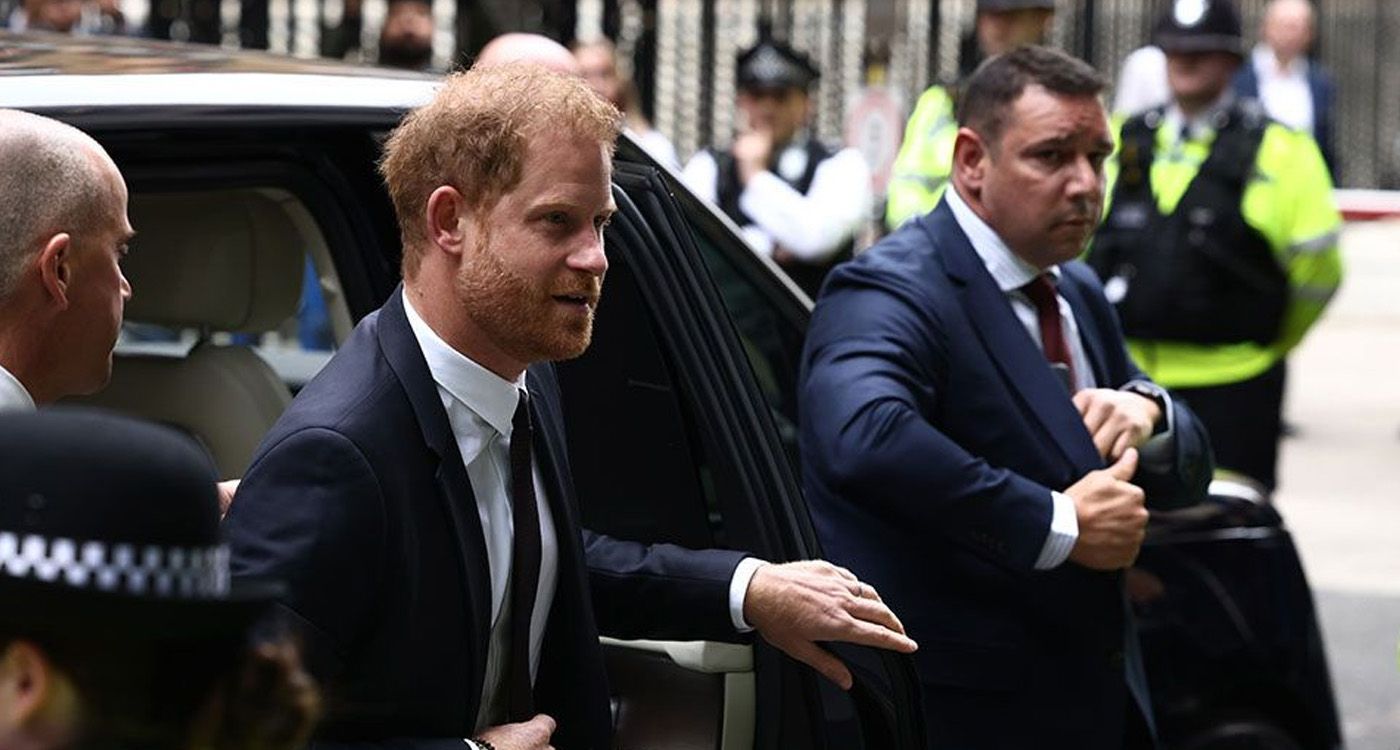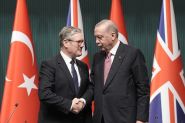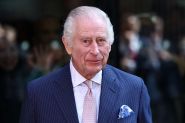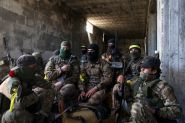- Home
- Middle East
- Shocking Interview: Prince Harry Opens Up, the Crown Grows Irritated

©Henry NICHOLLS/AFP
In a somber interview with the BBC, Prince Harry expressed his desire for “reconciliation” with the British royal family, while acknowledging the depth of the rifts between them. His statement comes shortly after the rejection of his legal appeal against the removal of his police protection in the UK—an issue he claims makes contact with his father, King Charles III, extremely difficult.
“Life is precious. I don’t know how much time my father has left,” confided the Duke of Sussex, referencing the king’s cancer diagnosis, made public in February 2024. Exiled in the United States since 2020 with his wife Meghan Markle and their two children, Harry has been openly critical of the monarchy through several documentaries, a high-profile interview with Oprah Winfrey and his memoir Spare. The rift with the Crown deepened further, particularly with Prince William, the heir to the throne, with whom relations are now virtually nonexistent.
Prince Harry’s comments come amidst a tense legal battle, following the rejection of his appeal against the Home Office’s decision to revoke his police protection since stepping back from royal duties in 2020. Calling the judgment “deeply disappointing,” Harry told the BBC that the decision was driven by a desire for control from within the monarchy, pointing specifically to King Charles III’s inaction. He likened the situation to a “stitch-up” orchestrated by the establishment. However, the Court of Appeal deemed the removal of protection “predictable” and entirely legal. Acknowledging the depth of familial breakdowns, Harry admitted that some relatives may never forgive him, even expressing doubt that he’ll ever be able to bring his children back to the UK.
While most of the British press reacted to Harry’s remarks with skepticism, a few dissenting voices showed empathy. Liz Jones, a columnist at the Daily Mail—usually critical of the Sussexes—wrote in an unusually emotional op-ed, “I’m in tears. […] I’ve rarely seen a public figure, let alone a prince, speak with such sincerity.” She described him as a “deeply sad man, no longer bitter, but reaching out,” especially when speaking about his father’s illness: “I don’t know how much time he has left.” According to her, the filial love is undeniable, but Harry appears “doomed to disappointment” in a broken relationship with a father who, “with a simple gesture, could fix everything.” She concluded that if Charles and William ignore this outstretched hand, they would seem “petty and vindictive”—an image the public would not easily forgive. She added, “If the late Queen Elizabeth II were still alive, she would be the first to reach out and embrace her grandson.”
In stark contrast to these emotional reactions, many royal insiders harshly criticized Harry’s approach, calling it poorly timed and counterproductive. Officially, Buckingham Palace reiterated that “all these matters have been thoroughly reviewed by the courts.” Privately, however, the tone is sharper. A source close to the king told The Sun that Charles feels “frustrated and saddened” by his son’s actions, accusing Harry of undermining constitutional neutrality and attempting to burden taxpayers unfairly. Other sources cited by ITV News condemned the move as yet another breach of confidentiality, claiming the late Queen would have been “horrified” by such public exposure. Ailsa Anderson, former press secretary to Queen Elizabeth II, warned that revealing details about the king’s health could fuel damaging speculation, “If you really want to reconnect, you don’t do it in front of cameras.” One royal adviser summed it up, “The king is a kind man burdened with heavy responsibilities. He didn’t need this turmoil caused by his own son.”
Just hours after the explosive interview, Meghan Markle posted a black-and-white photo on Instagram showing Harry with their children in a pastoral setting. Seen by some as a quiet show of support, others interpreted the image as an act of defiance. “It’s a giant middle finger, isn’t it?” a palace insider allegedly told journalist Rebecca English. British psychiatrist Dr. Raj Persaud described it as a form of “emotional blackmail” aimed at provoking a response from the royal family. In his view, the alleged inability to reach the king, combined with revelations about his health and the children’s absence, might be a calculated move to “force the Palace’s attention.” This interpretation echoes within royalist circles, where the Sussexes are accused of manipulating public opinion due to a lack of private dialogue. “The underlying message seems to be: take me seriously, or I’ll damage the institution,” Dr. Persaud concluded.
Meanwhile, at Buckingham Palace, royal life continues with an air of calm determination. In sharp contrast to the Duke of Sussex’s public comments, the key figures of the monarchy—King Charles III, Queen Camilla, the Prince and Princess of Wales and other senior royals—stood united on the Palace balcony to commemorate VE Day, waving to a cheering crowd in a solemn, glamorous display of monarchic continuity. A carefully curated image of stability amid the now very public family turbulence.
Read more




Comments